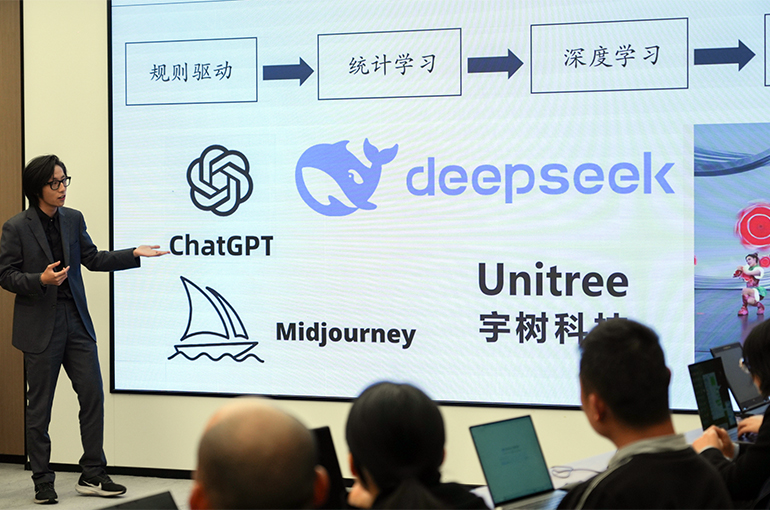 As Alibaba and Tencent Peddle Their AI Wares, Profit Path Remains Unclear
As Alibaba and Tencent Peddle Their AI Wares, Profit Path Remains Unclear(Yicai) March 20 -- Aiming to attract more users, Chinese internet giants Alibaba Group Holding and Tencent Holdings are stepping up marketing efforts to promote their artificial intelligence products, but whether this will result in profitability or the creation of true super apps remains uncertain.
Yuanbao, the AI assistant Tencent launched last May, was the first to integrate the DeepSeek large language model last month. Since then, the Shenzhen-based company has pushed more and more promotional content about Yuanbao across WeChat Moments, video channels, search pages, service accounts, and even on posters in rural areas.
Yuanbao's daily active users has soared 20-fold since last month, making it China's third-most popular AI-native mobile app, President Martin Lau said on Tencent's annual earnings conference call yesterday.
Alibaba recently unveiled its AI flagship app Quark, an all-in-one AI assistant powered by the company’s proprietary foundation model Tongyi Qianwen, which debuted in 2023. All future breakthroughs in the Tongyi Qianwen series will be integrated into Quark at the earliest opportunity, the Hangzhou-based firm noted.
To expand the reach of their AI assistants, both companies have restructured the related departments, acknowledging that practical applications must take precedence over technical complexity in AI development.
Alibaba moved the managers and engineers working on its consumer-facing AI products to its intelligent information business group, which houses Quark, from its cloud intelligence group, while Tencent shifted the Yuanbao team into its cloud and smart industries group from the team responsible for its proprietary foundation model Hunyuan.
However, these AI apps are still a long way from becoming the indusry’s highly anticipated super apps, with no clear path to profitability. Indeed, most lack sustainable business models and incur significant computing costs, resulting in ongoing losses.
“AI models themselves may not be profitable, but as a traffic gateway they bring endless possibilities," said Sun Xin, regional vice president at market research firm Gartner Research. Despite the unresolved issue of monetization, bigger investments by major players to attract users may provide an advantage in the competition for super apps, he noted.
User growth can directly boost company valuations, Sun pointed out, but more importantly, it accelerates ecosystem building, which serve as a technological barrier.
Super apps are supposed to have channels for third-party developers to integrate interfaces or plugins, said Niu Xianhao, head of the industry division at the Beijing Academy of Artificial Intelligence. Large tech firms with existing ecosystems in food delivery, maps, and other segments have more resources and time to succeed, Niu added.
Editor: Futura Costaglione